
fipy
Fick's law refers to the relationship between mass transfer flux and concentration gradient in the molecular diffusion process when the mass transfer phenomenon occurs without relying on macroscopic mixing. law. Fick's law was proposed by Adolf Fick in 1855.

The partial differential equation of dynamic diffusion can be obtained from Fick's second law. Solving can obtain the concentration distribution and outflow curve.
I am not sure if there is an analytical solution to this problem, but numerical solution is a more general solution.
fipy is a rare PDE solution python package that is still alive. The author adapted this program based on the official example.
Related recommendations: "Python Video Tutorial"
Question
A two-dimensional flat plate, the top is 1 degree Celsius (100 is also Yes, it’s just a coefficient), the other three edges are 0 degrees Celsius, and the entire board is 0 degrees Celsius at the initial moment. As time goes by, heat is transferred on the board, and finally reaches an equilibrium state. We not only want to know the temperature distribution of the equilibrium state, Also want to know how the temperature changes over time. The transfer of heat is given by a differential equation, which can be simply understood as heat is transferred in the direction in which the temperature decreases the fastest.
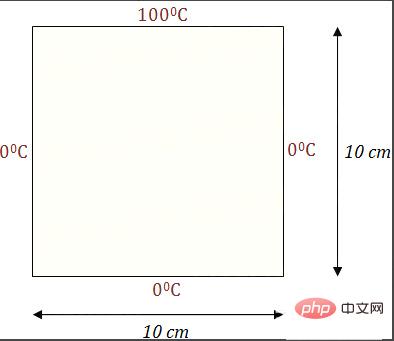
The right side of the formula is the gradient of temperature, and the left side is the change of temperature with time

Finally, the temperature distribution of the entire board Roughly show how
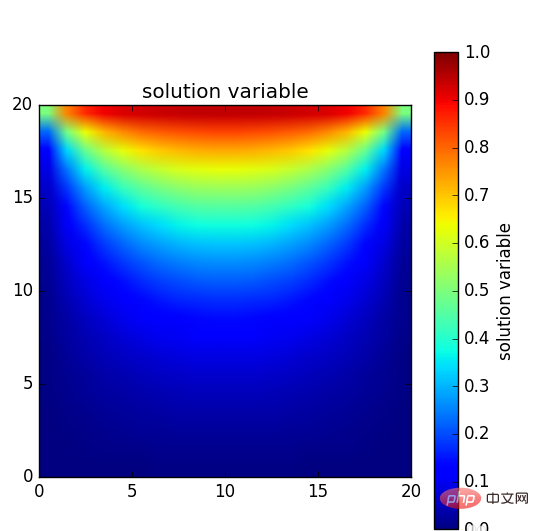
Only one package needs to be imported
import fipy as fp
Determine the solution area, a 20*20 grid point
#Solve area nx = 20ny = 20dx = 1.dy = dxL = dx * nxmesh = fp.Grid2D(dx=dx, dy=dy, nx=nx, ny=ny)
phi = fp.CellVariable(name = "solution variable", mesh =
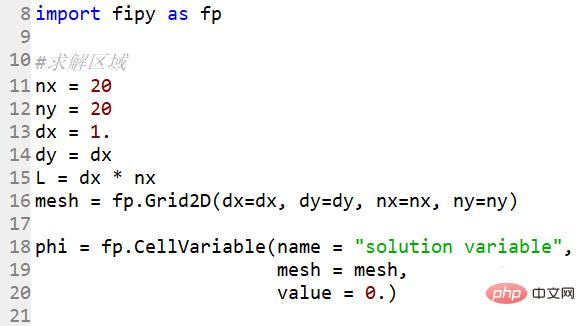
Establish boundary conditions

Create drawing
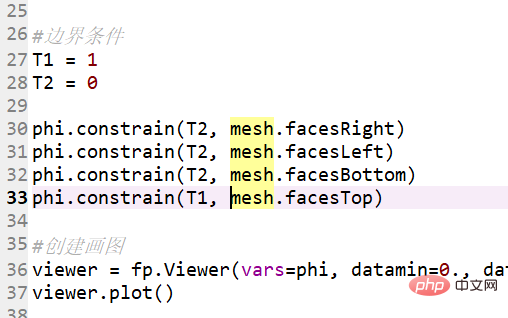
Solution

It is recommended to run it in the command line, where you can get animated images, ipython There is only the last picture in it
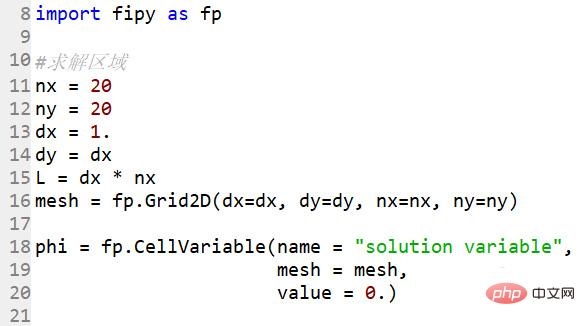 There is only the last picture in spyder’s ipython
There is only the last picture in spyder’s ipython
The above is the detailed content of Can Python solve partial differential equations?. For more information, please follow other related articles on the PHP Chinese website!